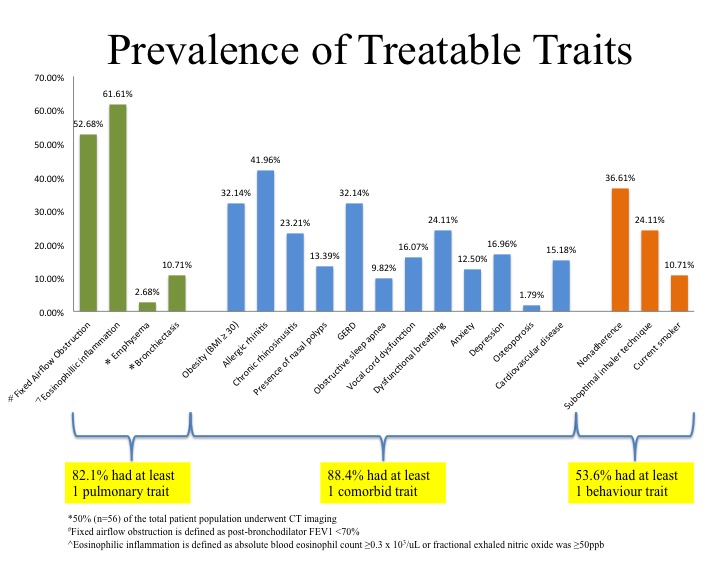Abstract
Introduction
Treatable traits are prevalent in difficult asthma; prioritising these traits for intervention are necessary for resource allocation.
Aim
We aim to establish the prevalence of treatable traits in a multi-racial cohort of difficult asthma patients in Singapore and their impact on outcomes.
Methods
Patients referred to our difficult asthma clinic underwent a standardized assessment. Treatable traits were included in linear and negative binomial regression models to determine their association with Asthma Control Test (ACT) scores and exacerbations.
Results
From 2017 to 2021, 112 patients were seen with a median of 4 (3-6) traits. Active smoking (11% vs 0% p<0.01) and obstructive sleep apnoea (8% vs 2% p<0.05) were more prevalent in males while depression was more common in females (4% vs 13% p<0.05). Compared to non-Malays, Malay patients were more likely to be obese (21% p<0.01), have gastro-esophageal reflux disease (16% p<0.01) and depression (7% p<0.05). The presence of dysfunctional breathing (?-2.94 [CI -5.25; -0.64] p<0.05) or vocal cord dysfunction (? -2.48 [CI -4.96; -0.003] p<0.05) was negatively associated with ACT scores. Patients with fixed airflow obstruction (OR 1.78 [CI 1.14 to 2.81] p<0.01) or still actively smoking (OR 3.15 [CI 1.45 to 7.13] p<0.01) had higher odds of having an exacerbation.
Conclusion
Treatable traits vary between gender and race, and significantly impact asthma outcomes.